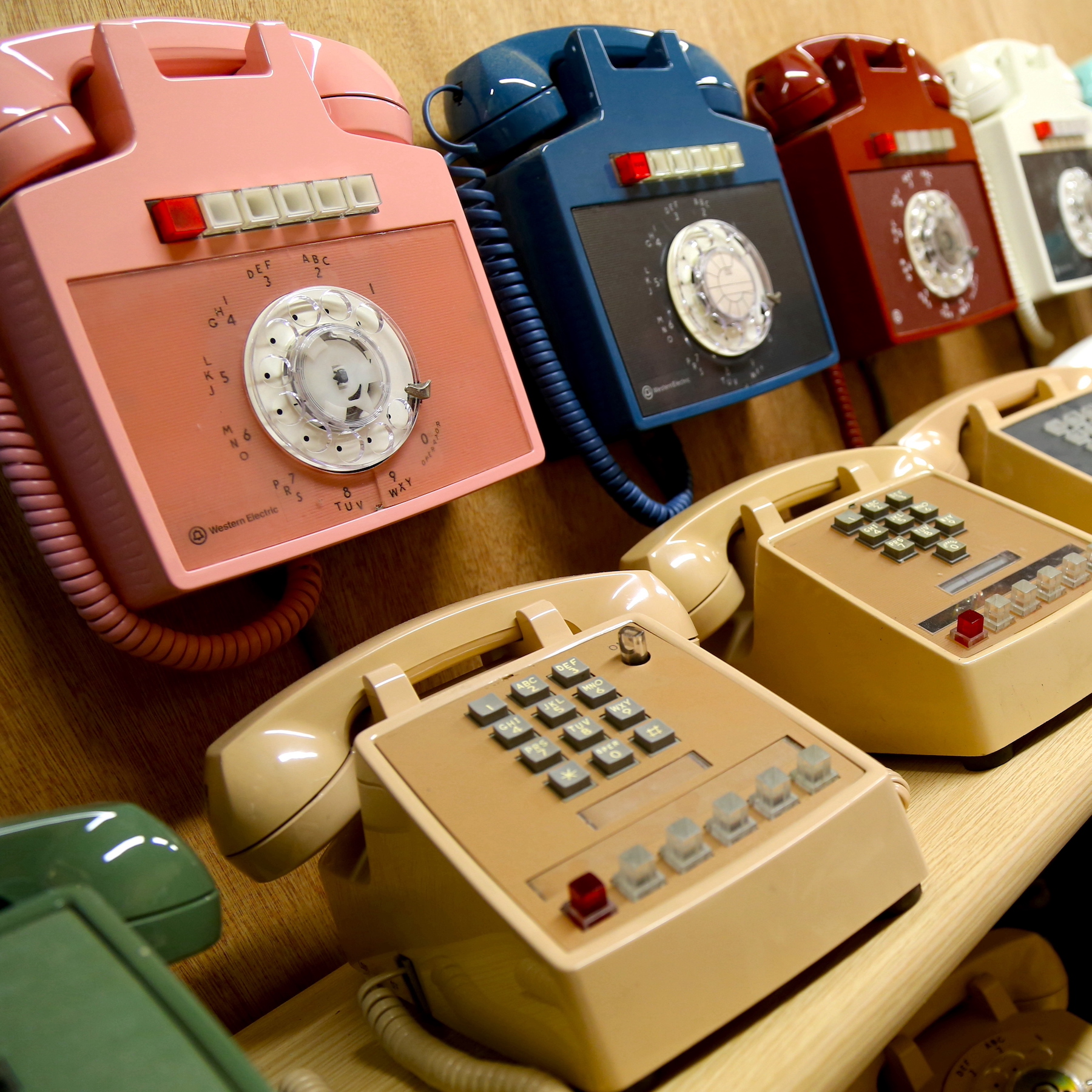Sometimes an SMS msg reaches me a ½ day or full day late. Sometimes an SMS doesn’t reach me at all. I don’t use SMS often yet there are two recent instances where a friend sent an SMS that somewhat required a reply from me. When we met in person, they told me in detail what the SMS said and I said with 100% confidence that I did not receive the message. My friend was baffled in disbelief… how can this be?
All my friends use smartphones for SMS but I will not. I use a feature phone (aka dumb phone). Smartphones can be updated for bug fixes but also because of that possibility I think there is a culture of writing sloppy code in the first place. The makers also want you to be forced to buy upgrades so bugs are good for that business. Smartphones are also a hell of a lot more complex and complexity is proportional to bugs. My dumb phone cannot be updated but it’s extremely simple & the tech is old thus proven.
Regardless, I did a brief dig & it seems the GSM network is to blame, not the phones. According to tech writer Adam Fendelman, “It’s been shown that around 1-5 percent of all SMS messages are actually lost even when nothing is seemingly wrong”. Yikes. That is terrible.
This article is oriented toward the assholes who spam you with SMS ads. I almost closed the page but then saw a gem therein which gives this reason for some msgs being dropped:
“Flagged as Spam: Sometimes, carriers of recipients may flag your SMS as spam because of the use of certain language, words, or symbols that trigger spam filters.”
Shit; that sucks. So the same thing that makes email less reliable than fax is making SMS less reliable too. I know from my spam boxes with various email providers how crappy the spam/ham separators can be so I actually seek out & favor email providers who have no spam filtering. I had no idea that my SMS msgs would be subject to this. In principle, I might like SMS to be spam-filtered but only if the positives for spam are still made available either by emailing them or giving me a web portal.
Of course SMS can also fail for obvious reasons:
- your phone is off or out of range
- your phone lacks storage (dumb phones run out of memory)
but there is some machinery at work to ensure reattempts.
I am certain that my phone was not out of memory when my friend tried to SMS me. My phone shows me a msg: “incoming msg but memory full” when that happens.
Fendelman’s article also says “SMS is usually lower on the priority list than other traffic like voice.” And worse, there is often no error detection in place so apparently some networks don’t even know when a SMS msg is lost.
The lack of SMS reliability is why the old radio pagers from the 80s have not been completely mothballed. Some cities are wise enough to keep them around for ER docs and firefighters. What about the cities that have not? They just decided SMS is reliable enough for lives to depend on?
I want my 1980s pager back.
I recently retired from the local volunteer fire and rescue service. Several years ago the 911 dispatch service wanted to drop paging for notifications and move to SMS. I wrote a nice little technical critique of that plan. In addition to the basic issues regarding coverage (many members have no cell service in their yards, never mind in the fields, yet pagers basically just work), I learned from my technical contacts at the telco that there were a number of service guarantee problems. In addition to the lost and delayed message problem you discovered, things only get worse when crossing providers. As he put it, it’s not so much that it works so good most of the time, it’s that it works at all.
Dispatch did go with SMS notifications, but as an add-on to pagers and “robocalls” to registered phone numbers. We tracked notification channels for several months and found that with every callout, at least one member would report getting the SMS at least 20 minutes later than the page or phone call. Note that most members can get to the hall in 20 minutes or less. A couple of times over the years, we got a flurry of SMS notifications after we were on scene.
Friends don’t let friends use SMS for urgent or critical communications.
I would love to get back to a radio pager. But there are a few hurdles:
- Radio pagers are no longer manufactured so you have to build one or scrounge the 2nd hand market
- Service has shrunk and there is a duopoly in the US. So the price of service is a bit high and you must sign a 1 year contract (non-starter for nomads)
- You can overcome the service cost by getting a ham license & a #POCSAG pager. But privacy is toast because encryption is illegal over the amateur radio bands. Hobbyists log the pager msgs and even publish the logs online.
Yeah, I think pagers are probably only useful for first responders and the like in remote areas. My pager would work even when our radios wouldn’t, but one way isn’t all that useful for most purposes.
I would certainly find pagers useful as a civilian provided that the signal is encrypted (even if not e2ee). Radio pagers are:
- more reliable than SMS
- faster than SMS
- privacy respecting (customer’s geolocation is not tracked in realtime; even dumb phones are tracked)
- AA batteries last a year in a pager before energy is depleted
- avoids feeding the harmful telecoms (in the US, all mobile carriers are evil… AT&T, Verizon, T-Mobile are all complicit in mass surveillance & we have a civic duty to boycott them all)
- avoids feeding the smartphone industry of designed obsolescence & massive piles of perfectly good hardware being dumped into landfills because the software aged
And worse, there is often no error detection in place so apparently some networks don’t even know when a SMS msg is lost.
This was true of 1980s pocket pagers as well.
The most common pager in the 80s was numeric. You receive only their phone number. Your callback is confirmation of receipt. When you enter an alphanumeric msg (SMS), there is a natural tendency to word it precisely so that a reply is not needed whenever possible, for efficiency.
My dumb phone has a read receipt feature as well as my GSM USB s/w and I use it. I think I only had a few instances where the read receipt did not come back or it came back extremely late, but that particular recipient is also someone who is likely traveling abroad, phone off, etc. So I’m not sure if it’s a reliable mechanism. Perhaps the fact that it came back quite late once suggests that the server waited until he turned on his phone & ensured it was delivered to his phone instead of just to a network server. I should perhaps find out if the person who sends me msgs that get dropped uses a return receipt notification.
Just wait till you find out the reliability of faxes and subsequently find out how much of the medical profession relies on them.
Glad to hear it. This inspired me to post Why fax is more reliable than email.
And indeed email is mostly dead to me. I’ve gone back to fax and snail-mail for the most part. Between the two I rely more heavily on snail-mail because lately faxes are downgraded by having email in the loop anyway. OTOH, the fax service → email segment is likely much more reliable than the email → email segment so it’s almost a toss up. I’ll often send a fax if it’s gratis and the sensitivity is not at a level where I’m worried that MS & Google will OCR it for their exploitation.
Why are you still using SMS to communicate in this day and age? Does your feature phone not have any internet communication options?
You might think lack of updates is a good thing, and while you’re protected against planned obsolescence and bad updates you also get no bug fixes and no security updates.
Using SMS is terrible for security/privacy, you’ve already discovered yourself that your messages could be intercepted and marked as spam by some unknown middleman!
I will not email recipients whose email is hosted by a surveillance capitalist (Google, MS) for a couple reasons: both Google & MS have broken email by dictating which IPs may connect to their service. They exclude me arbitrarily for having a residential IP. The official reason is bullshit. The real reason the corporate bottom line: to force everyone to relay their mail through a provider who GAFAM likes & ultimately ensure they get their eyes on as many msgs as possible. I will not feed them. So I do an MX lookup on the recipient’s email address and probably 90+% of the time it’s GAFAM. And when it’s not GAFAM, there is still a ~70% chance that the other server has conformed to Google’s variety of exclusivity (#SpamHaus, etc). The same recipients who use GAFAM for email don’t intersect with those competent enough to use PGP. So it’s a shit show of piss poor privacy, ethics, & plain old walled garden exclusion.
With email mostly canceled for me, I insist on people close to me using Wire or XMPP+OMEMO. For a few hold outs I use SMS, which is less of a disclosure abuse risk than GAFAM-hosted email.
For myself, I still use SMS a lot.
The lack of interoperable messengers means that dropping SMS requires installing 3 or 4 different messaging apps, one of which I can’t install because I use Android. So it’s Signal for 3 or 4 people, SMS for everyone else. Quite a few of those “everyone else” people were willing to use Signal as their “everyone else” app, but dropped it when Signal dropped SMS support. It seems people are willing to use a primary app and a secondary app, but not 3 or more.
In my world, SMS won’t go away until someone develops an open protocol that everyone adopts in an interoperable way.
I would suggest looking for a replacement for #Signal:
https://github.com/privacytools/privacytools.io/issues/779
at least for your more advanced folks, if they can handle some of the quirks/glitches of XMPP & OMEMO.
Lol. That’s never going to happen. Most of the people I communicate with can barely wrap their heads around the fact that SMS doesn’t require “WiFi” (their name for internet).
For myself, I’ve looked at some of the other systems, but decided that there’s no point since I’d be alone. :)
For the relatively low tech crowd including elderly folks, #Wire is the best answer IMO. It’s a drop-in replacement for #Signal.
The overplayed criticism of Wire is that metadata is insecure. But when it comes to family it’s not really a big reveal in the whole of things. Wire is more inclusive than Signal and the Wire project is more welcoming of a free world than Signal.
XMPP may be user friendly enough if everyone in the group uses #Snikket. The significant glitches only tend to emerge when different client apps are used.
One of the people I SMS with said he would be open to using Signal (and that seemed like a huge concession of his philosophy, as he thinks if you encrypt stuff you invite attention [this is exactly what mass surveillance proponents want you to think]). I refused because I will not share a my phone number with Signal. I distrust their competency to protect the number & also have a problem with the elitism they push by excluding people without mobile phones.
Thanks for the recommendation. I’ve been using Signal since the TextSecure days. In all that time, I’ve been able to move very few people off of whatever came pre-installed.
I looked at Wire when it came out and decided that any gains were not worth the hassle of getting people to move. The fundamentals of switching costs haven’t changed. That is why so many people who rail against Facebook and Twitter still use them.
Indeed resistance to change is sadly why the masses cling to the worst options. It really takes a spark of outrage to motivate people. Musk buying Twitter wasn’t enough… it has to be Musk doing enough bullying to reach the staw that breaks the camel’s back.
Whenever a surge of refugees join the fedi, it’s never because of widespread realization of superior tech. It’s always out of rage over some bad event that drives people over.



